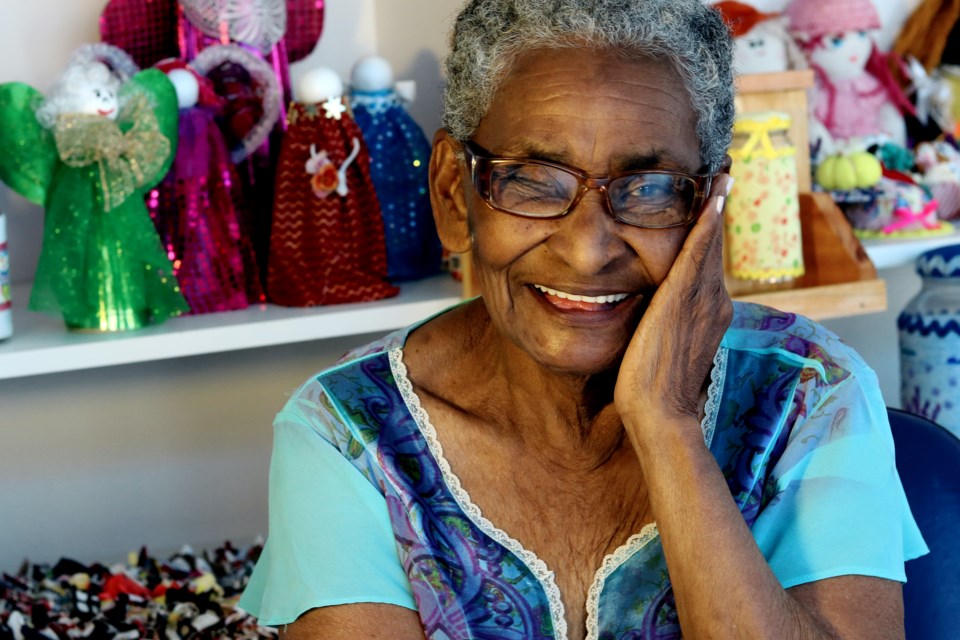Approximately 20 years ago, the Boulder County Area Agency on Aging, or AAA, took note of an overwhelming concern among the Rainbow Elders, a self-titled group of LGBTQ+ older adults in Boulder. The concern was about how they would be treated if they eventually sought senior services. At the time, the members of the group worried about having to go back “in the closet” in order to be treated fairly in an assisted living or long term care facility, said Michael Chifalo, the LGBTQ+ programs specialist at AAA.
In an effort to address the Rainbow Elders’ shared fear of the future back in 2004, AAA gave birth to Project Visibility, a program that persists toward its goal today “to co-create an aging services community that is informed, sensitive to, and supportive of LGBTQ+ elders,” according to the Project Visibility website.
In its beginnings, Project Visibility consisted of one training course geared to teaching assisted living and long term care facility employees professional practices which would help them better serve LGBTQ+ older adults while on the job. Since then, the project has evolved to offer much more.
One key component of Project Visibility is a documentary film in which LGBTQ+ people speak about their lives, strengths, wishes and concerns about the aging services industry. AAA filmed the first of such documentaries for Project Visibility in 2004, another in 2008 and, Chifalo is excited to announce, the organization recently received funding to start filming a third version of the documentary.
For the new documentary, AAA is seeking to feature “underserved voices in the Boulder community who we don’t hear from as much, such as members of the transgender, non-binary, BIPOC communities, folks who have fewer resources and people with different abilities,” Chifalo said.
Although Project Visibility remains directed at members of assisted living and long term care communities, today, any resident of Boulder County can participate in the project’s training courses for free. Project Visibility offers trainees the choice between a three hour, in person session that occurs quarterly at AAA or a 90-minute online course. Chifalo — the instructor for all Project Visibility training — also takes requests for customized, group training sessions.
In any format, Project Visibility participants can expect a powerful training experience that introduces them to the LGBTQ+ older adult community and gets them thinking about ways they can support that community, Chifalo said.
Each training covers topics including the importance of pronouns, language and terminology, sexual orientation and gender identity, the meaning behind each letter in the LGBTQ+ acronym, discrimination, stigma and historical experiences that LGBTQ+ older adults may have been impacted by — a very important part of the training for multiple reasons, Chifalo said.
“We look at history because our LGBTQ+ older adults, in many cases, have lived through multiple decades and some quite a few decades,” Chifalo described. “It’s important to look at the impact of their cumulative experiences throughout those decades not only to think about the disparities that might have occured, but also what was going on in the world and how that may have impacted them.”
Each training wraps up with Chifalo presenting “promising practices,” or tools that people can employ to help create inclusive communities moving forward, he said.
For Chifalo, the most rewarding part of Project Visibility is seeing how motivated the individuals undergoing the training are to make changes, he said.
Since offering Project Visibility training, Chifalo has been able to inspire assisted living homes, long term care communities and other health-related institutions to create messages of inclusivity by redesigning documents, data and other office systems and signage to be gender neutral and inclusive. In turn, he has received positive feedback from the population Project Visibility sets out to serve.
“I do hear from the community when they’re able to experience that inclusivity and feel how much of a difference it makes to them,” Chifalo said. “I think that LGBTQ+ folks, especially older adults, are looking for those queues everywhere because they tell them about how safe they are to be themselves.”
In addition to offering Project Visibility training in Boulder County, Chifalo has been able to extend the project’s reach across Colorado and into other states by providing “train the trainer” courses where he teaches someone else the Project Visibility materials so can go on to teach others.
Despite the success he considers Project Visibility to be today, Chifalo has grand plans for the project’s future. Considering the steps toward inclusivity that he’s seen many institutions and individuals make following the materials from the current training curriculum, he believes that the community would benefit from an evolved Project Visibility that can offer further insight and an even deeper understanding into the lives of LGBTQ+ older adults, he said.
If people take only one thing away from Project Visibility now and in the future, Chifalo hopes that it’s a lesson on kindness.
“You really don’t have to know everything about someone or what they represent to be nice and kind,” he said. “Even without learning the specifics you learn in the training, I hope people learn to just try to be nice because it really goes a long way.”

.jpg;w=120;h=80;mode=crop)

